to tell what someone said. Yet, we do not
repeat all the words exactly.REAL WORDS (direct speech):
Tom said: “We are going to the cinema this afternoon.”
REPORTED SPEECH:
Tom said that they were going to the cinema that afternoon.
FindSlide.org - это сайт презентаций, докладов, шаблонов в формате PowerPoint.
Email: Нажмите что бы посмотреть
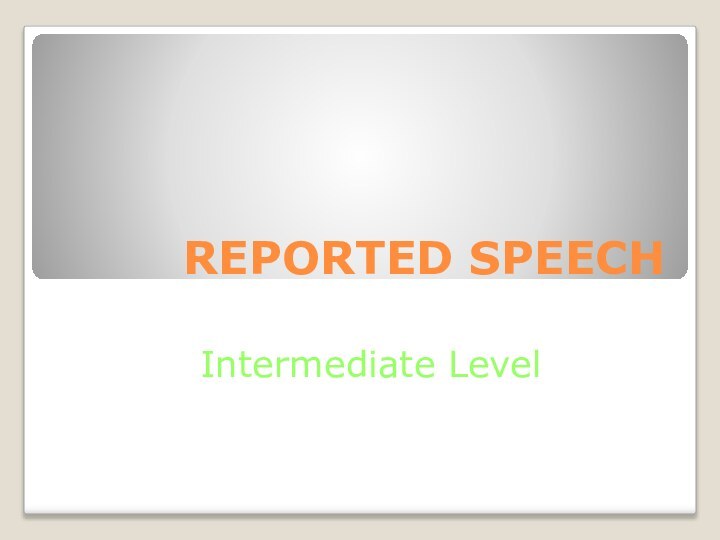
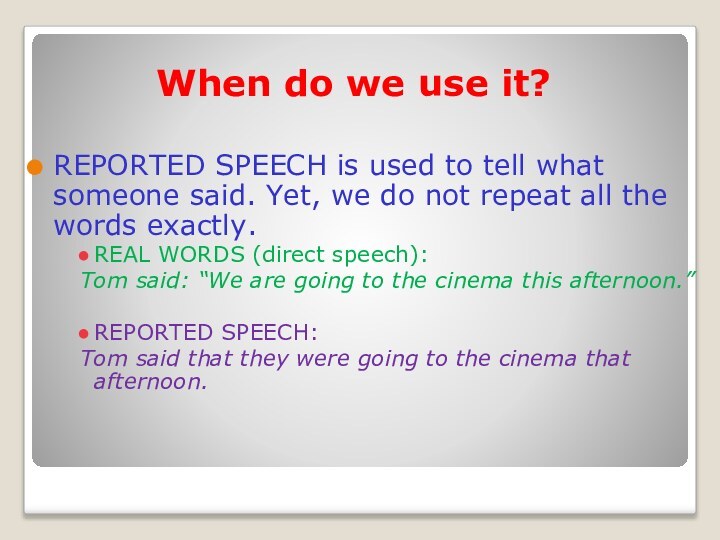
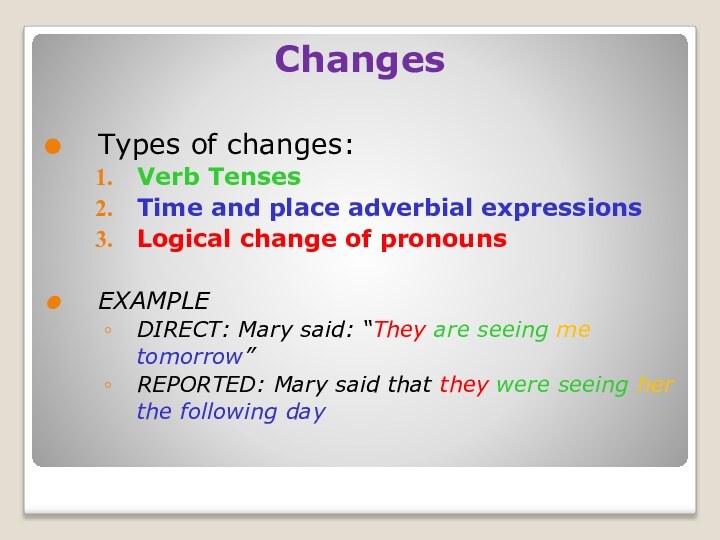
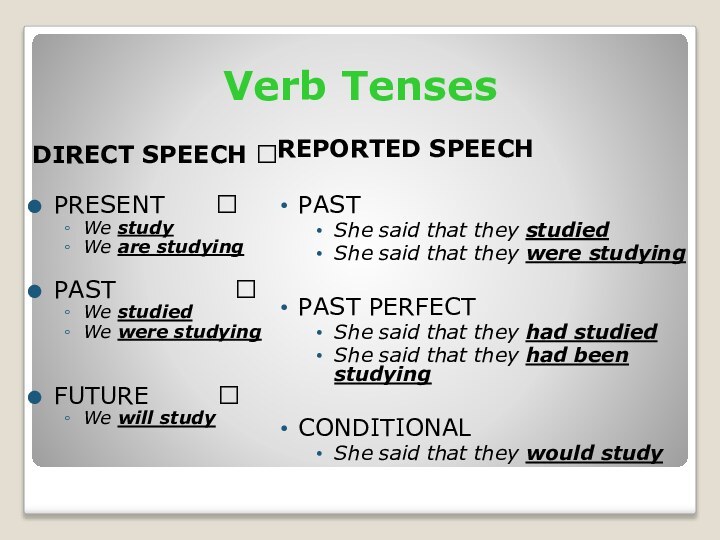
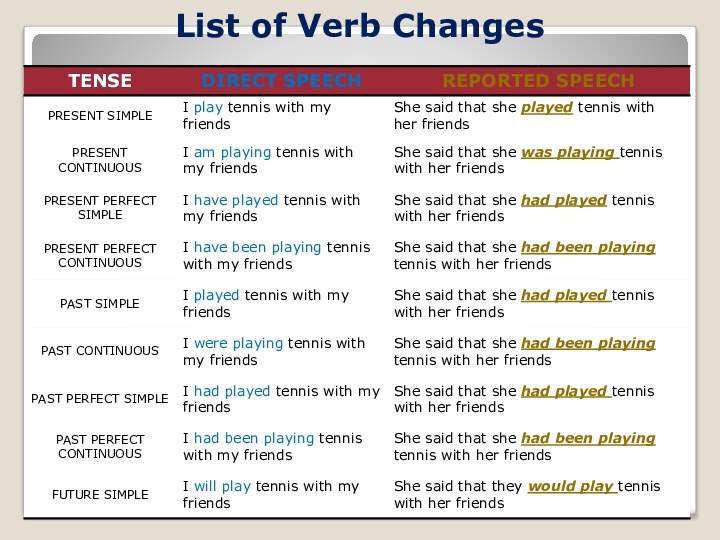
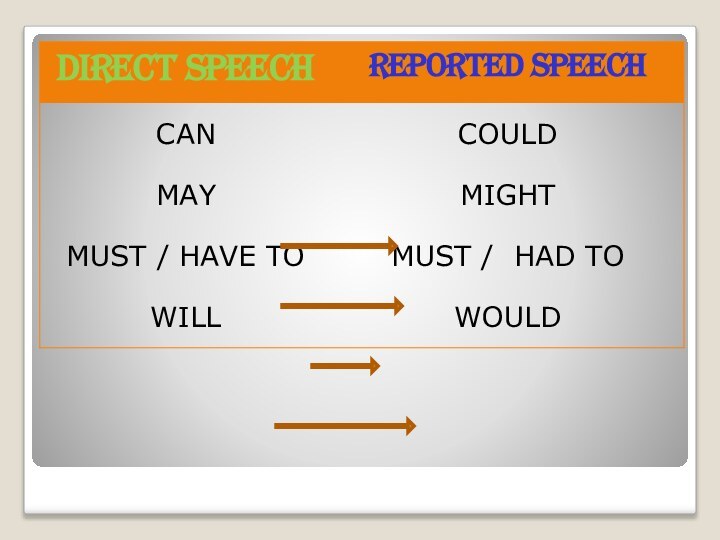
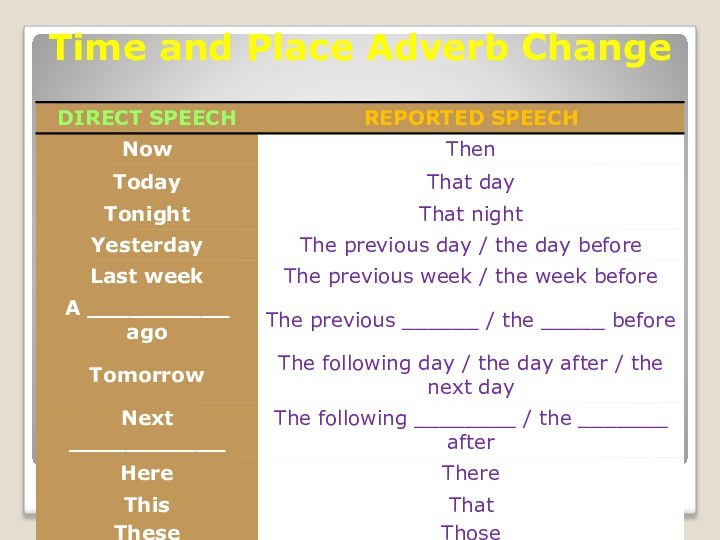
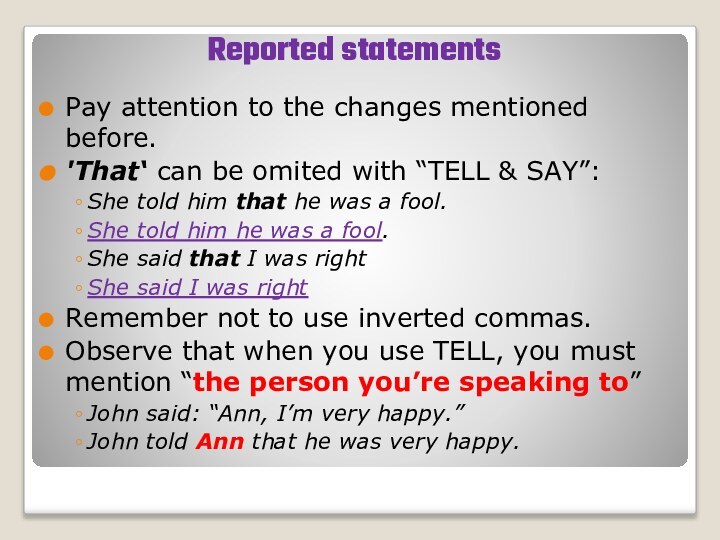
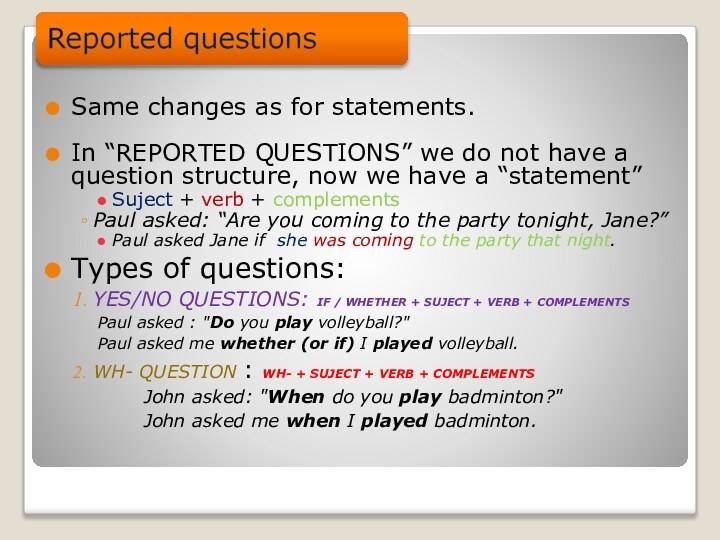
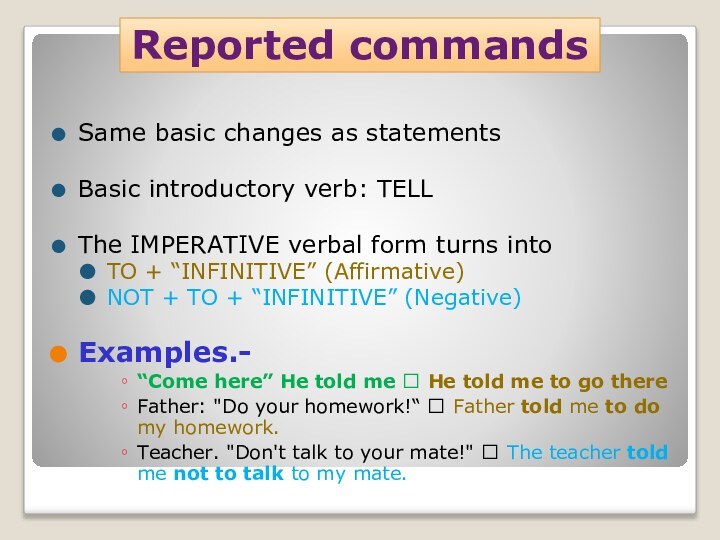
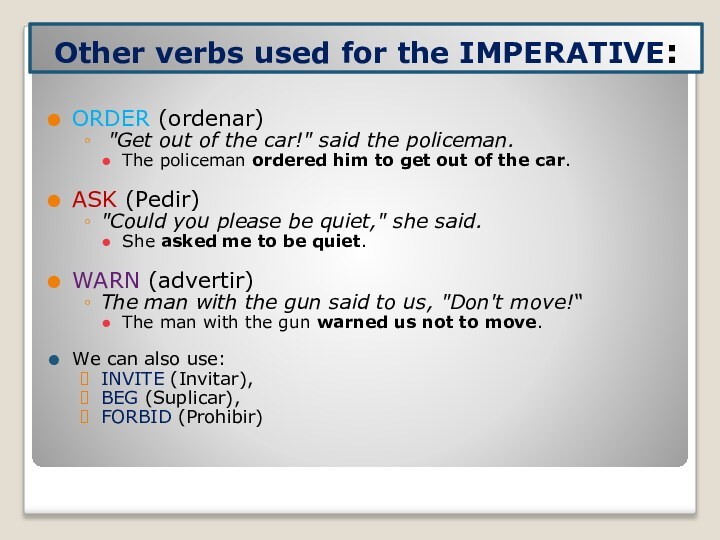
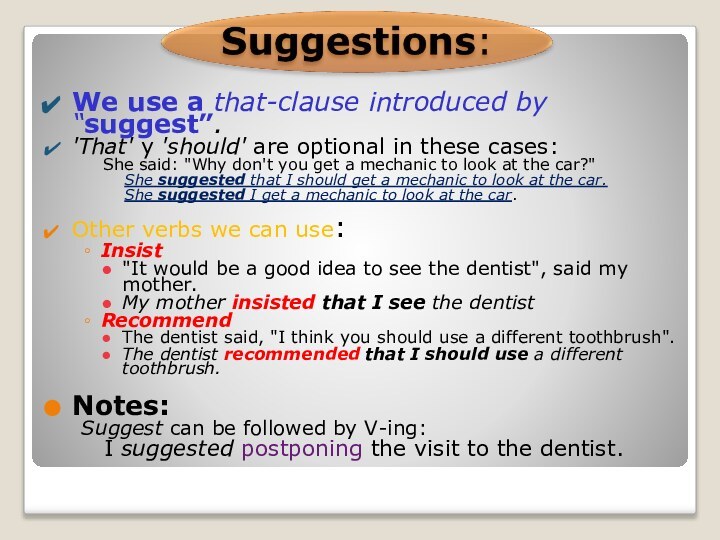
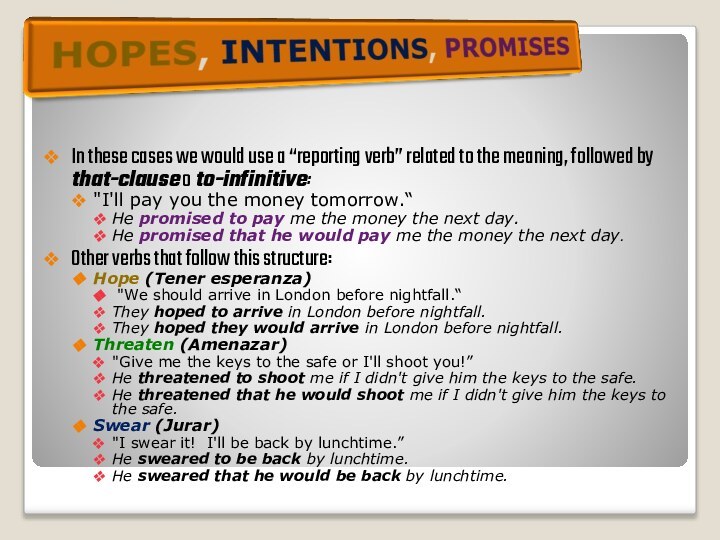
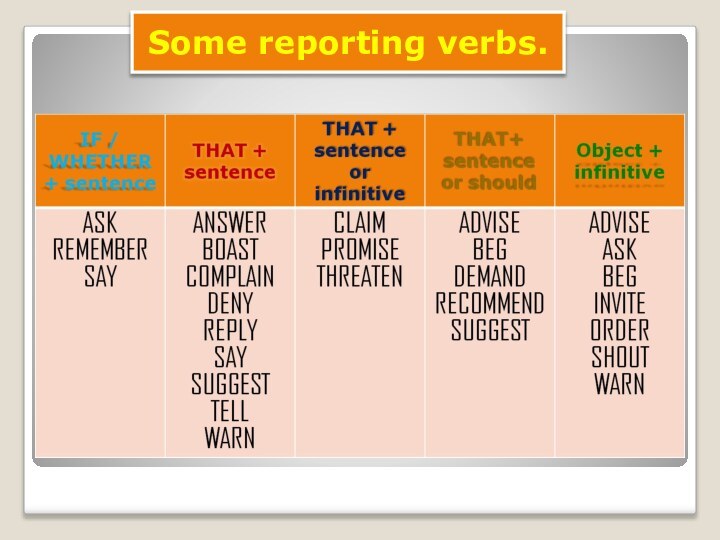
REPORTED SPEECH
PAST
She said that they studied
She said that they were studying
PAST PERFECT
She said that they had studied
She said that they had been studying
CONDITIONAL
She said that they would study